 CHALLENGE
CHALLENGESummary of This Program
A Health Science Major With a Focus in Exercise Physiology
Learn how to help others reach their peak physical condition with the exercise physiology track of Neumann University’s health sciences bachelor’s degree.
Taking the exercise physiology track prepares you to help patients live healthier, more active lives through jobs in hospitals, rehab facilities, wellness centers, and more.
You’ll learn from expert faculty with a wealth of experience in research and connections in the field. These instructors can give you the breadth of expertise you’d find in large schools in our small school setting.
While you’re here, you’ll learn by doing in our many well-equipped labs, including six in our new Health Sciences building and two recently renovated labs located in the Living Learning Centers. Lectures are often paired with labs to ensure that you get hands-on experience in what you’re learning.
Hands-on experience extends beyond courses to a service-learning project you’ll develop yourself during your senior year, as well as optional spring break study-abroad opportunities. You’ll also complete a 300-hour internship prior to graduation to provide you real-life work experience on your resume when you begin applying for jobs.
At the end of your studies, you’ll be fully prepared to take the ACSM certification exam. Whether you begin your career or go on to graduate school, you’ll have the educational foundation necessary for success.
Health Sciences Major, Exercise Physiology Track – Features
- Primarily in-person, but some classes are available in hybrid and online formats
- Low student-to-faculty ratio
- Learn in the new Health Sciences Center
- Get hands-on experience in new and renovated labs
- 300 hours of internship required for graduation
Health Sciences Major, Exercise Physiology Track – Learning Outcomes
- Cultivate problem-solving skills for assessing patients’ physical needs and develop a treatment plan.
- Complete a service-learning project to practice treating patients with empathy and compassion.
Health Sciences Major, Exercise Physiology Track – Required Courses
- HSC 100 Introduction to Health Sciences 3 Credits
- HSC 105 Basic Functional Anatomy 3 Credits
- HSC 110 CPR and First Aid 1 Credit
- HSC 240 Strength and Conditioning 3 Credits
- HSC 245 Resistance Training and Conditioning 3 Credits
- HSC 260 Exercise Technique and Prescription 3 Credits
- HSC 270 Program Design in Strength and Conditioning 3 Credits
- HSC 290 Advanced Strength and Conditioning 3 Credits
- HSC 300 Health Risk Appraisal and Special Populations 3 Credits
- HSC 305 Health Risk Appraisal and Special Populations Lab 1 Credit
- HSC 310 Personal Health 3 Credits
- HSC 440 Biomechanics 3 Credits
- HSC 445 Biomechanics Lab 1 Credit
- HSC 450 Physiology of Sport and Exercise 3 Credits
- HSC 455 Physiology of Sport and Exercise Lab 1 Credit
- HSC 475 Professional Preparation for Health Sciences 3 Credits
- HSC 489 NSCA Exam Prep 1 Credit
- HSC 499 Strength and Conditioning Internship 3 Credits
Health Sciences Major, Exercise Physiology Track – Tuition
Tuition is based on the number of credits students are enrolled in. For more information, visit the Office of Financial Assistance.
Health Sciences Major, Exercise Physiology Track – Admissions Requirements
For more information on the admissions requirements for this program, visit our admissions page.

Neumann actually pushes you out of your comfort zone.
Frequently Asked Questions
Health Sciences Major, Exercise Physiology Track FAQs
What are the careers for graduates with a health sciences bachelor’s degree?
Graduates of this track find work in cardio or pulmonary rehab centers, helping patients regain strength after an...
What are the careers for graduates with a health sciences bachelor’s degree?
Graduates of this track find work in cardio or pulmonary rehab centers, helping patients regain strength after an operation or illness. Others work in fitness or wellness centers, or serve the needs of athletic teams. Many attend graduate school to train for careers as athletic trainers, occupational or physical therapists.
What are the salaries for exercise physiologists?
According to the U.S. Bureau of Labor Statistics, jobs in this field are expected to grow by 9 percent in the next 10 years, which is faster than the...
What are the salaries for exercise physiologists?
According to the U.S. Bureau of Labor Statistics, jobs in this field are expected to grow by 9 percent in the next 10 years, which is faster than the average. The median salary for exercise physiologists is currently about $51,000, and those who pursue careers in physical therapy earn a median of $96,000.
Who are the employers?
Graduates holding health sciences degrees can find employment in hospitals, rehab centers, sports facilities, fitness centers, and other health and fitness settings. Employers...
Who are the employers?
Graduates holding health sciences degrees can find employment in hospitals, rehab centers, sports facilities, fitness centers, and other health and fitness settings. Employers ranging from sports teams and military installations to medical settings are looking for exercise physiologists.
What is the coursework like for the Bachelor of Science in Health Sciences?
Much of the coursework is paired with lab work in one of our many new or renovated facilities. While most coursework is...
What is the coursework like for the Bachelor of Science in Health Sciences?
Much of the coursework is paired with lab work in one of our many new or renovated facilities. While most coursework is done in-person, some classes can be completed in hybrid or online formats.
In addition to traditional coursework, you will also complete an internship and a service-learning project in your senior year.
What are the certification exams?
While not every health sciences field requires a certification, we thoroughly prepare students for the ones that do. These include strength and conditioning,...
What are the certification exams?
While not every health sciences field requires a certification, we thoroughly prepare students for the ones that do. These include strength and conditioning, exercise physiology, and health education.
In addition, some health sciences jobs require certifications at the end of a graduate program. You’ll work with advisors to make sure you’re on track to be accepted into graduate programs and, ultimately, pass those exams.
What are other related programs at Neumann?
Additional tracks in the health sciences major include:
- Strength and Conditioning
- Health Educator
- Pre-Athletic Training
- Pre-Occupational Therapy
- ...
What are other related programs at Neumann?
Additional tracks in the health sciences major include:
- Strength and Conditioning
- Health Educator
- Pre-Athletic Training
- Pre-Occupational Therapy
- Pre-Physical Therapy
Other Neumann Health Sciences-related degrees
We're Here to Help
